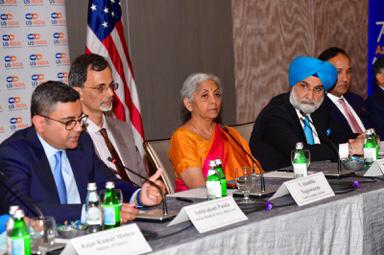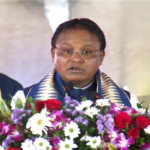Urban governance needs to be democratized to transform Bhubaneswar into a world class city, says Mayor Sulochana Das
By Chittaranjan Beura
Bhubaneswar, April 23: Smart City Bhubaneswar that has ranked second after Shimla in the Ease of Living Index-2020 is attracting more and more people from across the state and the country to settle down. With this, the people’s expectations on provision of shelter, infrastructure, drinking water, sanitation, waste management, space for public utility and market have been increasing.
In such context, it is high time the urban governance needed to be democratized to transform the city into a world class one, said Sulochana Das, the newly elected Mayor of Bhubaneswar Municipal Corporation (BMC). She emphasized the residents need to complement the BMC in implementing various projects for the development of the city.
Das was speaking at a consultation on – Democratizing Urban Governance – A Case of Bhubaneswar – organised by the Centre for Youth and Social Development (CYSD), a Bhubaneswar-based non-profit, here on Saturday.
The citizens’ committees in each ward can play a vital role in identifying the problems and apprising the appropriate authorities. The BMC is taking initiatives to strengthen the committees in all the 67 wards, Das said further.
Das also emphacised that the committees should act as guards to ensure proper sanitation, availability of civic facilities and making the city encroachment-free.
As the citizens’ representatives highlighted on the water-logging and drainage problem of the city, Das maintained that the BMC is catalysing measures to ensure that all the drains of the city get de-silted before the onset of monsoon. She urged the denizens to cooperate in the waste management process conducted by the BMC, monitor the de-siltation process in their areas and apprise the BMC immediately if they observe any loopholes.
According to CYSD co-founder Jagadananda, as per the 74th Constitution Amendment Act (CAA), the urban local bodies are provided a uniform charter to function as effective democratic units of local self-government. Besides, constitution of the Finance Commission under Article 243-A provided a good opportunity to the ULBs to receive various financial grants- from central and state finance commissions to operate their functions with autonomy.
In this context, it is vital to understand citizens’ participation, contribution and partnership in defining the critical needs and recommending community based solutions, he added.
Jagadananda further added that BMC is taking a lot of initiatives on health and sanitation, slum development, disaster management, city beautification, citizen’s services, solid waste management, underground sewage system, efficient urban planning and development, developing vending zones and parking zones. However, the effectiveness of these services requires citizens’ participation, awareness and monitoring, he maintained.
Members of residents’ welfare associations, senior citizens’ forums, CSOs working on urban issues, city planners and engineers and development practitioners shared the problems faced by the residents and recommended solutions.
Navneeta Das, senior researcher of CYSD presented on the water-sanitation-hygiene scenario of the city. Basanta Nayak, CYSD’s programme director, moderated the discussion.






